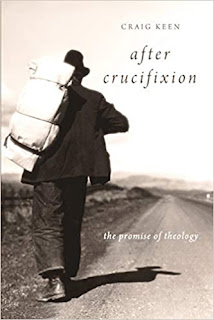Theological Journal - April 30: Why God Is Not In Control (2)
Theological Journal – April 30 Why God is Not in Control – And It’s a Good Thing Too! (2) Here’s where we got to yesterday: -God created the world as a temple in which he would dwell in order to be with his human creature and share life with them. -God exercises his sovereignty through his human creatures, royal priests in his creational temple. Their proper discharge of these responsibilities manifests his sovereign rule over and love for his creation. -Humanity spitefully spurned God and rejected their calling as royal priests opting instead in making a bid to be god itself, no longer manifesting the wise sovereignty of its Creator. -Instead, creature and creation fell into chaos and disrepair, neither functioning as they were meant to. God’s intended creational home has been “subjected to futility” as Paul puts it in Romans 8 and must wait in groaning and tears to God reclaims and restores humans to their intended royal priesthood and practice of divine sovereignty...
